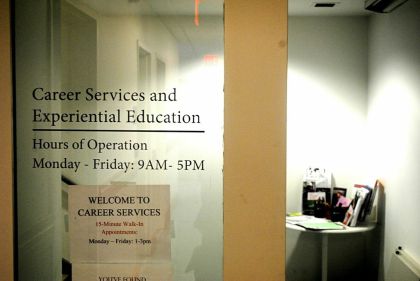By Marcelle Meyer

On March 15, 27 NGOs gathered in Geneva, Switzerland and committed to paying their interns, adding significant weight to an ongoing dialogue about unpaid internships in the professional world.
Most Fordham students are familiar with the concept of working without pay — as you search internship listings on CareerLink, desperately hoping to find a good internship for next semester, maybe one out of every 20 listings offers any form of compensation.
Many companies look for interns, especially for liberal arts majors, are non-profit or simply have limited funding.
However, private sector businesses, a less popular sector among Fordham students, regularly offer paid internships.
It is on students to consider their financial future when picking a major, but their area of study should not doom them to debt and unpaid labor for four years.
The issue surrounding unpaid internships is not just that students are not paid for legitimate work that has monetary value. Unpaid internships also create an economic divide between those who can afford to boost their resumes with impressive, albeit unpaid internships, and those who cannot.
An internship on Capitol Hill, for example, requires students to work unpaid for 40 hours per week and does not compensate for housing or transportation.
Political science majors of a higher socioeconomic class have a clear advantage with the option to spend a summer paying for housing in Washington, D.C. without earning a salary.
Financially disadvantaged students often have to work part-time jobs that have less relevance to their area of study and, consequently, less importance on their resume. A college education is supposed to give students an equal opportunity in the job market that is based on how hard they work, not how much money they started out with.
Although it is true that many companies simply cannot afford to pay interns, it is also true that many can.
Interns are part-time workers who contribute to the company’s success and eventual profit. Why should they not receive a piece of the profit they generate?
Many argue that internships are a learning opportunity, and that these experiences are a privilege that will eventually open the doors for greater opportunities in the future.
But with students paying upwards of $60,000 per year on learning opportunities, should we really have to pay any more than we already are?







































































































































































































